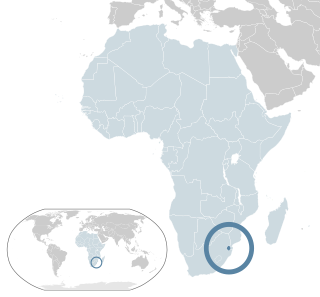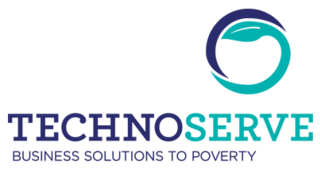
Eswatini, officially the Kingdom of Eswatini and also known by its former official name Swaziland, is a landlocked country in Southern Africa. It is bordered by Mozambique to its northeast and South Africa to its north, west, south, and southeast. At no more than 200 km (120 mi) north to south and 130 km (81 mi) east to west, Eswatini is one of the smallest countries in Africa; despite this, its climate and topography are diverse, ranging from a cool and mountainous highveld to a hot and dry lowveld.
Telecommunications in Eswatini includes radio, television, fixed and mobile telephones, and the Internet.

Artifacts indicating human activity dating back to the early Stone Age have been found in the Kingdom of Eswatini. The earliest known inhabitants of the region were Khoisan hunter-gatherers. Later, the population became predominantly Nguni during and after the great Bantu migrations. People speaking languages ancestral to the current Sotho and Nguni languages began settling no later than the 11th century. The country now derives its name from a later king named Mswati II. Mswati II was the greatest of the fighting kings of Eswatini, and he greatly extended the area of the country to twice its current size. The people of Eswatini largely belong to a number of clans that can be categorized as Emakhandzambili, Bemdzabu, and Emafikamuva, depending on when and how they settled in Eswatini.

Mswati III is Ngwenyama (King) of Eswatini and head of the Swazi royal family.

Lobamba is a city in Eswatini, and is one of the two capitals, serving as the legislative, traditional, spiritual, seat of government of the Parliament of Eswatini, and Ludzidzini Royal Village, the residence of Queen Ntfombi, the Queen Mother.
Child labour in Eswatini is a controversial issue that affects a large portion of the country's population. Child labour is often seen as a human rights concern because it is "work that deprives children of their childhood, their potential and their dignity, and that is harmful to physical and mental development," as defined by the International Labour Organization (ILO). Additionally, child labour is harmful in that it restricts a child's ability to attend school or receive an education. The ILO recognizes that not all forms of children working are harmful, but this article will focus on the type of child labour that is generally accepted as harmful to the child involved.

Prince Barnabas Sibusiso Dlamini was a Swazi politician who served as Prime Minister of Eswatini, from 1996 to 2003 and again from October 2008 to September 2018.
Young Heroes is a charity, based in Mbabane, Swaziland. With a focus on orphaned and vulnerable children and their elderly caretakers, Young Heroes directly addresses the HIV/AIDS epidemic in Swaziland — the nation with the world’s highest rate of infection — on three fronts: education and prevention; healthcare; and impact mitigation/poverty reduction.

Lesbian, gay, bisexual, and transgender (LGBT) people in Eswatini have limited legal rights. According to Rock of Hope, a Swati LGBT advocacy group, "there is no legislation recognising LGBTIs or protecting the right to a non-heterosexual orientation and gender identity and as a result [LGBT people] cannot be open about their orientation or gender identity for fear of rejection and discrimination". Homosexuality is illegal in Eswatini, though this law is in practice unenforced. According to the 2021 Human Rights Practices Report from the US Department of State, "there has never been an arrest or prosecution for consensual same-sex conduct."
Education in Eswatini includes pre-school, primary, secondary and high schools, for general education and training (GET), and universities and colleges at tertiary level.
HIV/AIDS in Eswatini was first reported in 1986 but has since reached epidemic proportions. As of 2016, Eswatini had the highest prevalence of HIV among adults aged 15 to 49 in the world (27.2%).

TechnoServe is an international nonprofit that promotes business solutions to poverty in the developing world by linking people to information, capital and markets. It is a registered 501(c)(3) based in Washington, D.C., with over 1,540 employees across 29 countries worldwide.
Prostitution in Eswatini is illegal, the anti-prostitution laws dating back to 1889, when the country Eswatini was a protectorate of South Africa. Law enforcement is inconsistent, particularly near industrial sites and military bases. Police tend to turn a blind eye to prostitution in clubs. There are periodic clamp-downs by the police.
Nathan "Natie" Kirsh is a South African billionaire businessman and philanthropist. He heads the Kirsh Group, which holds a majority stake in New York state cash and carry operation Jetro Holdings, owner of Restaurant Depot and Jetro Cash & Carry. The Group also holds equity and investments in Australia, Eswatini (Swaziland), the UK, the US, and Israel. He lives in Eswatini (Swaziland), and has residency in the United Kingdom and the United States.
Eswatini for Positive Living (ESWAPOL) is a Swazi NGO that was formed in 2001 by Siphiwe Hlophe and four other HIV-positive women. ESWAPOL provides counselling and education, and seeks to improve the living conditions of people who are affected by or infected with HIV in the rural areas, many of whom are women. The organisation has over 1000 members, mostly women, and is highly active in e.g. challenging the policies of the Swazi government on its AIDS and Women's Rights policies.
Positive Women is a registered UK international development charity working in UK and Eswatini. The charity works to improve the lives women and children affected by the HIV/Aids virus, which is particularly prevalent in Eswatini Positive Women manages and develops a number of projects through its partner NGO Eswatini for Positive Living or ESWAPOL which is based in Manzini, Eswatini. It focuses its efforts on education, income generation and creating healthier communities.

The Nelson Mandela Children's Fund (NMCF) is a charitable organisation founded by Nelson Mandela, based in South Africa. Its mission is to help individuals from birth to age 22.
The Health in Eswatini is poor and four years into the United Nations sustainable development goals, Eswatini seems unlikely to achieve goal on health. As a result of 63% poverty prevalence, 27% HIV prevalence, and poor health systems, maternal mortality rate is a high 389/100,000 live births, and under 5 mortality rate is 70.4/1000 live births resulting in a life expectancy that remains amongst the lowest in the world. Despite significant international aid, the government fails to adequately fund the health sector. Nurses are now and again engaged in demonstrations over poor working conditions, drug stock outs, all of which impairs quality health delivery. Despite tuberculosis and AIDS being major causes of death, diabetes and other non-communicable diseases are on the rise. Primary health care is relatively free in Eswatini save for its poor quality to meet the needs of the people. Road traffic accidents have increased over the years and they form a significant share of deaths in the country.

Eswatini nationality law is regulated by the Constitution of Eswatini, as amended; the Swaziland Citizenship Act, and its revisions; and various international agreements to which the country is a signatory. These laws determine who is, or is eligible to be, a national of Eswatini. The legal means to acquire nationality, formal legal membership in a nation, differ from the domestic relationship of rights and obligations between a national and the nation, known as citizenship. Nationality describes the relationship of an individual to the state under international law, whereas citizenship is the domestic relationship of an individual within the nation. Eswatini nationality is typically obtained under the principle of jus soli, i.e. by birth in Eswatini, or jus sanguinis, born to parents with Eswatini nationality. It can be granted to persons with an affiliation to the country, or to a permanent resident who has lived in the country for a given period of time through naturalisation or the traditional khonta system.







